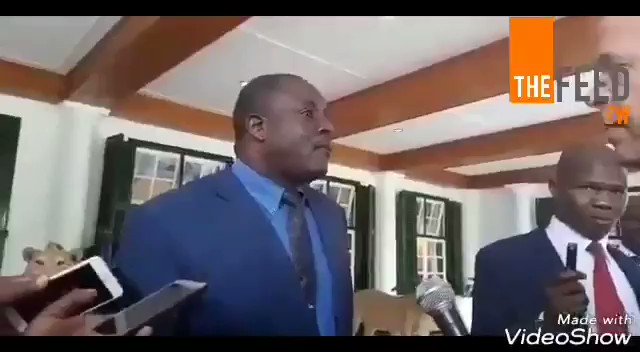President Emmerson Mnangagwa’s bid to rejoin former British
colonies’ club, the Commonwealth, as part of his re-engagement efforts with the
West, appears to have hit a snag after the ex-colonial masters raised a red
flag this week over Harare’s ongoing brutal crackdown on protesters, including
fatal shootings of at least 12 civilians last week.
Britain’s Commonwealth minister, Lord Tariq Mahmood Ahmad,
warned that the ongoing reports of military brutality against unarmed civilians
and opposition leaders were jeopardising Zimbabwe’s chances of being
re-admitted into the elite club.
“Many saw during the (2018) Commonwealth summit, the
government’s commitment to encourage, among other partners, the new Zimbabwe to
come forward for membership. Clearly, the events that have unfolded recently
put that into question — but, of course, it is a matter not for the UK, but for
the Commonwealth as a whole,” Ahmad said.
Mnangagwa last year applied for Zimbabwe to re-join the
Commonwealth and invited the bloc, which is made up of former British colonies,
to send representatives to observe the July 30, 2018 polls, whose results have
been disputed by the opposition Nelson Chamisa’s MDC party.
The Commonwealth observer mission also condemned the
elections, saying they fell short of international best practice, but the
British government had maintained a soft stance on Mnangagwa’s government,
hoping for quick political and economic reforms despite the fatal shooting of
six civilians in the August 1, 2018 post-election violence.
But latest developments have dampened chances of
re-engagement, with most global powerhouses expressing concern over Zimbabwe’s
regression to autocratic rule, as soldiers have taken over policing roles,
manning roadblocks and maintaining order in major cities and towns.
The Donald Trump-led United States government has also
condemned the government crackdown targeting members of opposition and civic
society groups linked to last week’s violent fuel price hike protests.
To date, the crackdown has led to the arrest of over 1 000
people, among them five MDC legislators and labour leaders.
“The targeting and arbitrary arrests of political activists,
civil society and labour leaders violates Zimbabwe’s Constitution and impedes
the country’s progress,” the United States embassy in Harare said in a
statement.
The US urged Zimbabwe to uphold the rule of law and protect
human rights.
Harare’s central business district resembled a war zone
yesterday as soldiers rounded up informal traders and anyone suspected of
jay-walking and led them to Harare Central Police Station, where they were
reportedly assaulted.
Mnangagwa, who is desperate to re-join the Commonwealth to
unlock lines of credit to oil the country’s failing economy, indicated on his
Twitter handle on Tuesday that he would deal with rogue State security agents
accused of brutalising civilians.
He also committed to reach out to all political, church and
civic leaders for dialogue to resolve the current political and economic
logjam.
But his spokesperson, George Charamba, threw spanners on his
boss’ re-engagement efforts on Wednesday declaring that government was not
desperate to join the Commonwealth group.
“The sentiments on prospects of Zimbabwe rejoining the
Commonwealth overlook a very basic fact, namely that it is the British
government which wanted Zimbabwe back into the Commonwealth. We related
positively to that indication because it coincided with our policy of
re-engagement. If there is a second thought on the matter, so be it,” Charamba
was quoted as saying.
Zimbabwe pulled out of the club in 2003 after former
President Robert Mugabe’s fallout with the West over electoral fraud, human
rights violations and the chaotic land reform programme.
Acting Foreign Affairs minister Cain Mathema could not be
reached for comment as he was said to have accompanied Vice-President
Constantino Chiwenga to the Democratic Republic of Congo for the inauguration
of Felix Tshisekedi as President.
State security agents on Wednesday reportedly raided the
home of Crisis in Zimbabwe Coalition (CiZC) chairperson, Rashid Mahiya, and
confiscated passports belonging to his wife and children.
“The State security agents stormed Mahiya’s home at around
midnight and threatened further action against the family,” CiZC said in a
statement.
“CiZC condemns the continued raids and abduction of civic
society and opposition activists at a time the government of Zimbabwe is trying
to mislead the international community that things have normalised in the
country.”
Several activists, labour leaders and main opposition party
members, who include #ThisFlag leader Evan Mawarire and Zimbabwe Congress of
Trade Unions (ZCTU) secretary-general Japhet Moyo, were arrested by the police,
while many have since been forced to go into hiding after receiving tip-offs
that State agents were after them.
The International Federation for Human Rights (FIDH) and
Zimbabwean Human Rights Association (ZimRights) called on government to end the
human rights violations being perpetrated by security forces and to release
detained protesters and civic society leaders.
“Zimbabwean authorities must immediately halt their
increasing authoritarian practices in responding to citizens’ grievances on the
worsening state of the economy and refrain from further excessive use of force
against peaceful protesters,” both the FIDH and ZimRights said in a joint
statement.
The organisations said thorough investigations must be
carried out on human rights violations and perpetrators brought to account.
FIDH vice-president Arnold Tsunga said authoritarian rule
was worrying, especially as it still exists in a government led by Mnangagwa, a
successor to Robert Mugabe, who was toppled from power in November 2017 after
nearly four decades of autocratic rule.
“Ahead of 30 July 2018 general elections, we advocated for a
real democratic transition to be initiated, particularly by reversing the
system of poor governance, corruption and serious abuses that marked the Mugabe
era,” he said.
“It is very disturbing to see that malpractices and
disproportionate use of force against peaceful protesters are still taking
place.”
Like this:
Like Loading...































































































































